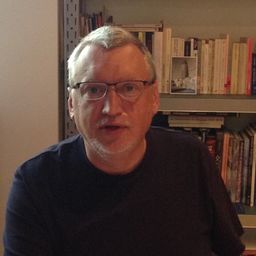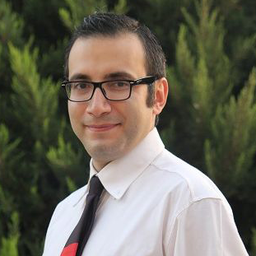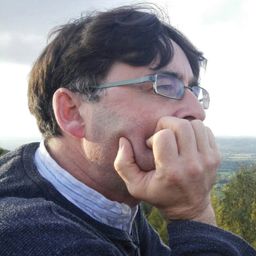Re-Writing History in the Time of Late Capitalism : Uses and Abuses of Built Heritage
My Session Status
Since the emergence of the restoration discipline, experts have been aware of the danger of falsification: Ruskin’s texts, Boito’s philological restoration, Brandi’s historical instance or the Venice Charter are so many illustrations of this concern. But since the 1990’s in Europe, a growing number of restoration and reconstruction projects very clearly depart from this fundamental idea. Of course, the collapse of the Soviet bloc has created a particular political context in which (re-)emerging nations attempted to (re-)build their identity through architectural symbols (leading to the writing of the Riga Charter). But more generally, this phenomenon is closely linked to the cultural context: on the one hand, the postmodern movement has deeply questioned the idea of “sincerity,” with a tendency to blur the limits between true and false and, as a consequence, between original and copy. And on the other hand, in the heritage sphere, the globalization of the debate progressively rattled European certitudes about concepts as essential as authenticity, leading to the replacement of the self-confidence expressed by the Venice Charter by a careful relativism, illustrated by the Nara document thirty years later.
These contemporary phenomena have important side effects. In the context of late capitalism, heritage has become a major economic issue, especially as many cities have well understood its potentialities in terms of city branding. This could of course be seen as a positive opportunity for heritage conservation; nevertheless, a rich scientific literature has shown that tourism can deeply transform our representation of the past. The tourist is a client rather than an amateur, and his quest of authenticity is often satisfied by what the French philosopher Yves Michaud has called “adulterated authenticity,” the one from over-restored monuments, reconstructed city centres, eco-museums, and, why not, theme parks. More than authentic built remains, the “tourist gaze” shapes more and more our representation of “what has been,” and the arguments developed by heritage experts in response to globalization and identity issues are seized upon by city marketing specialists willing to meet a mostly commercial demand, sometimes tinged with dubious political motivations.
What we intend to question in this session is the limit between uses and abuses of heritage and heritage discourse and more particularly whether, as suggested by Theodore Scaltsas’s inspiring paper “Identity, origin and spatiotemporal continuity” (1981), the intentions underpinning restoration and reconstruction projects affect the very essence of restored or reconstructed objects. Besides architectural history and conservation theory, we welcome contributions in the fields of sociology, anthropology, philosophy, history, political sciences, geography, tourism economy and even psychology.
Sub Sessions
On July 1st, 2012, the Brazilian favelas were considered a world heritage site by UNESCO. What does it imply to those living in these places? Outstanding favela status revolves a long–standing binary opposition to the study of informal settlements, from the materialist perspective up to the idealist one. The neoliberal effects in the favelas, such as commodification, oppose a romantic depiction of the slum, for example. Thus, this paper will analyze the heritage legacy in the favela. It sc...
Urban planning means planning for the future and involves visions of how to use and develop built cultural heritage. Conceptions of built cultural heritage, understandings of its meanings and its heritage values, interact with planning processes. The aim of this paper is to investigate future uses of built cultural heritage envisioned in planning profound and large-scale urban transformations. How is existing built cultural heritage interconnected with ideas of developing and rebuilding bu...
In this paper, I will explore an example of urban regeneration: an ambitious project in a post-industrial British city, intended to reinvigorate the city, with shopping and leisure at the heart of new “public” space. If the discourses around the planning seem familiar enough, the realization (or lack thereof) is perhaps more unusual, and the project’s vicissitudes reflect problems inherent in regeneration and attendant in relationships between government and capital. In 2004, the ...
There is a perpetual quest today for “character” of places and cities, enhanced by mass tourism, where history is becoming more and more abused. Identity becomes fixed, over-determined, and insists on an essence, a point. However, identities, like heritage and memories, are evidently highly selective processes that are in constant flux, from the local to the global scale, being constantly modified together with the culture to which they belong. Such production of consecrated, almost canoni...
This paper concerns the changes and modifications of Polish built heritage after 1989. For Poland, the year of the fall of the Iron Curtain marked the beginning of political and economic transformation, of a transition from a socialist state and a member of the Soviet Bloc to a capitalist state integrated in the European Union. The implementation of democratic institutions and procedures, and the rise of free-market economy based on private property has nurtured profound changes in the sta...
The issue of authenticity seems to be currently a real focal point for understanding and also identifying the challenges of historic heritage. During the twentieth century, it has been addressed by several philosophers and experts. In addition, authenticity has very often been considered a “hub” to understand the present and it has been a topic for the epistemological research; from Walter Benjamin to Martin Heidegger, from Paul Sartre to Jacques Derrida, from Alessandro Ferrara to Charles...
Heritage, as something inherited from the past, is a document of ancient people and countries, survived thorough time, and transmitted from generations to generations. Continuous philosophical evolutions and new realizations about the histories, and the meaning of objects and places, have kept the heritage field very dynamic and active, which results, over time, in the concept of heritage to include the complex of physical artifacts, tangible, and the intangible attributes of a group or so...
You can only manage what you see and understand. For this reason, the values we ascribe to the built environment and the “architectural” heritage are important in informing what we think we are doing when we set out to conserve places. I will propose that there are only four essentially distinguishable reasons why people feel (or should feel) the compunction to conserve buildings and places. These extend the range of justifications for conservation actions considerably beyond the normal ra...







